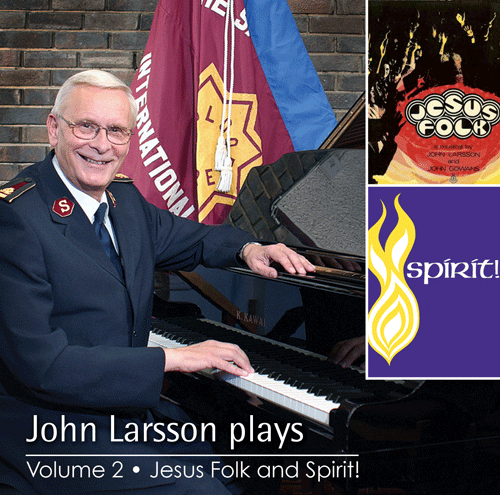Robert Docter, Editor-In-Chief
Much, much more than most imagine!
In the grand history of things Army, the quadrennial national conference of Salvation Army advisory organizations is fairly recent—an out growth of the creation of the Army’s National Advisory Board (NAB) about 30 years ago. These conferences are extremely valuable and provide a wide range of ideas with a clear focus on the Army’s mission. The NAB has a strong membership of business, social, economic, media and philanthropic leaders from across the nation. They have played a vital role in lifting the Army’s image and ushering it into the significance it has long deserved.
The conference itself “is designed to encourage active Salvation Army board members, employees, and officers to participate in the sharing of effective ideas, strategies and vision that will strengthen members as an integral part of The Salvation Army, our organization as a whole and the communities we serve.”
This 2011 conference contributed in highly important ways.
Ideas
Ideas are the products of creative cognitive processes. During this most recent conference, I was struck by the need for the Army to work more diligently with what we’ve come to call Generation “Y”—that segment of our population between the ages of 18 and 30.
Gen Y is 70 million strong. They’ve stayed in school longer and the top end is either already employed or ready for employment. They seem civic minded, a majority interested in religion, and seem to want to profit from the heavy divorce rate of the preceding generation by delaying marriage in order to “do it right.” They stay attached to their parents and call home regularly and often. They also communicate widely to friends.
Everyone, unfortunately, locks stereotypes into their brains. Several seem to leap up about Generation Y. Zach Whitaker, a blogger and member of this generation, seeks to debunk current myths about the age group. He writes: They’re not lazy. They are simply motivated differently than prior generations. They are not motivated by money but they are motivated by passion and achievement. They do not constantly need praise and reinforcement any more than anyone else, but they do seek attention. They do not lack experience. They simply have different types of experiences.
If you can’t see some doors open to the Army here, look again.
Ideals
Ideals speak of “high or noble character.” They are guiding attitudes, values and beliefs. The Army has the opportunity at NAOC to share insights about these factors in the organization that delegates seek to advise. In general sessions and individual workshops the Army’s ideals concerning the spiritual premise of Christian love, of helping others, of compassionate caring for all peoples go forth. Worship services and Army music present the essence of our ministry. We make evident our belief in the holistic nature of mankind—the inseparable link between our physical, mental, emotional, social and spiritual selves.
Education
A vast majority of the general public seems to have no idea what the Army is all about. They like us, but they don’t know us. This, by the way, is our fault. Neither soldiers nor officers do a very good job in explaining the unique goals of the Army.
Sally Harris, a long-serving member of both the national and the Manhattan advisory boards, became so sick and tired of hearing this that she produced a film for the NAOC conference a few years ago and called it Salvation Army 101. It introduces the nature of this holistic ministry from its beginning to the present day.
It should get more visibility.
Advisory board members need what Dick Hagerty a calls an “indoctrination.” Dick is a life member of the Modesto, Calif., board and a longtime member of the NAB. The “indoctrination” he speaks about is more than simply an orientation, and it must be accomplished locally. Dick, by the way, will be writing a regular column for New Frontier expressly for advisory boards in a coming edition.
NAOC provides opportunity for local board members to hear the scope of the Army’s service in 124 countries around the world. They need to hear that The Salvation Army has “one of the worlds most respected brands”—that it is the world’s largest charity.
Officers and employees need to understand the commitment and consistency, the awareness and knowledge of board members.
Tools
NAOC introduces officers and board members to some of the tools that can be used to facilitate their work. We are not only working to win the world for Christ, but also, to help repair it. Both of these goals involve working with one person at a time. We’re not talking about the United Nations or sectarian warfare. We’re talking about how your world or my world or my neighbor’s world can be changed.
To do this we need tools. Tools help us work. Most of the time, when trying to fix something, if you don’t have the right tool you can’t get the job done at all. If you don’t know how to use the tool you’re not going to succeed, either. NAOC will show you tools and help you learn to use them.
A thought
At this NAOC Tom Tierney said, “Stability is comfortable. Change disturbs.”
In our comfort zone, we can sleep through a lifetime just going through the motions and maintaining the status quo. That’s not my idea of a satisfactory life. The challenge of change inspires me. What about you?











